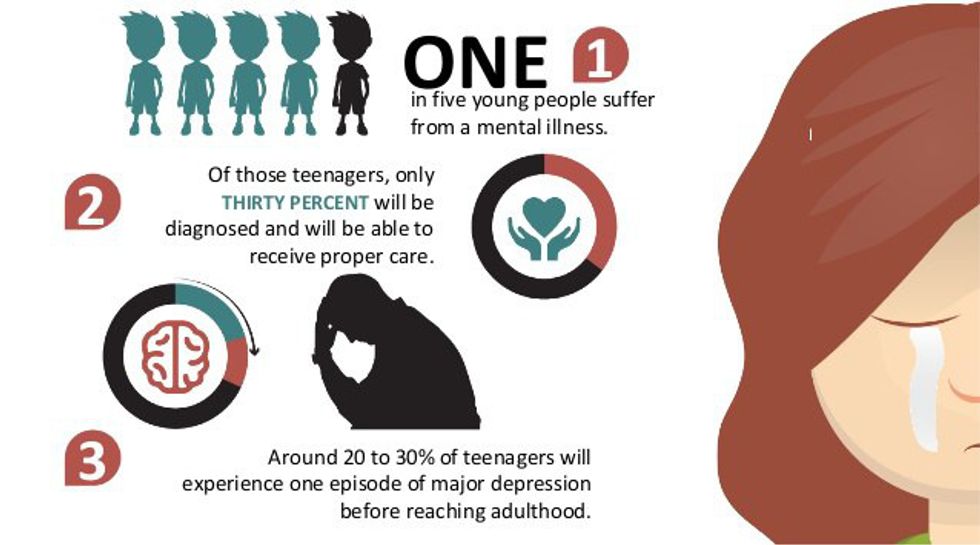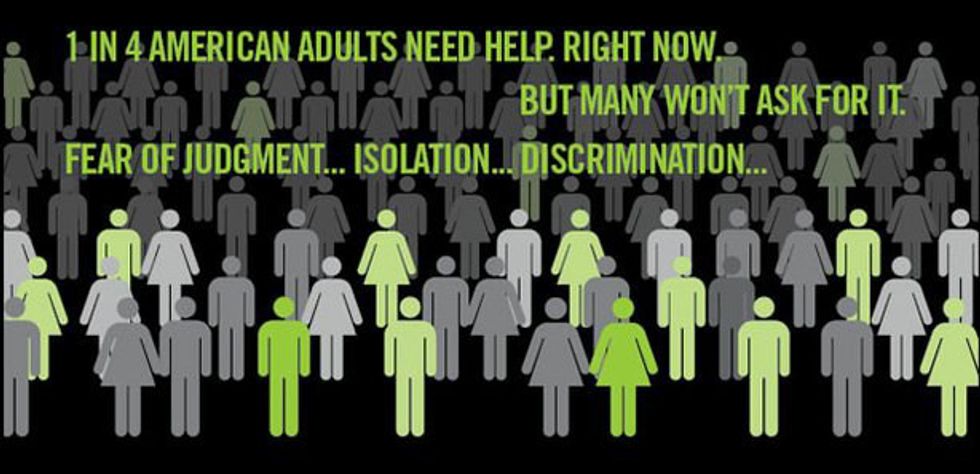While browsing through the latest trending articles on Odyssey recently, an article with a particularly harsh title stood out to me. The article, entitled "Stop Whoring Out Your Undiagnosed 'Mental Illness'" (which you can read here), may have good intentions, but it is far from a helpful contribution from the conversation we need to be having when it comes to mental health.
The main point of the article surrounds the need for those who believe they may be suffering from a mental illness to seek out professional help. If seeking professional help had been a means to the end of recovery, this would certainly have been a valuable point, since treatment is a key component of successful recovery from mental illness. However in this case, professional help is used as a means to the end of diagnosis. It seems that in this article, mental illness must be "proven" through diagnosis in order for those feelings to be validated. The context of the article is certainly understandable given the troubling romanticism of mental illnesses that can be seen on social media, with certain mental illnesses such as depression being seen by some as tragically beautiful. That being said, the answer to this romanticism cannot be the invalidation of undiagnosed individuals' feelings.
The article does include a note at the end clarifying that it is not meant to attack those who cannot afford to see a doctor, and that financial barriers create an entirely different situation than the one discussed in the article. This acknowledgement fails to include other barriers that individuals may have, such as distance or stigma. The conversation about mental health is continuing to grow, but there is still much to be done. Many continue to feel the burden of stigma when it comes to mental illness, whether it be from their colleagues, classmates, friends, or family. This stigma can be so powerful that even if resources are available, they are not seen as a viable option due to fear of judgement.
It may be true that there have been, and will be, people who lie on social media about having a mental illness in order to gain attention. But if we operate in such a diagnosis-driven manner, we risk isolating those who genuinely do have undiagnosed mental illnesses. We should not tell rape victims that we can't believe them until there's enough proof. We should not tell rape victims that they're just trying to get attention if their perpetrator hasn't been charged. Similarly, we should not those who have not been diagnosed that it's simply impossible to support them without "proof" that they aren't just looking for attention.
The people who talk about mental illness on social media are not, as the article suggests, turning mental illness into a "basic b*tch hashtag." These individuals may be lying, but they also may not be. And unless you can somehow manage to read that person's mind, you have no right to tell them their feelings are invalid. If true progress is to be made on the mental health front, it is imperative that each person's first instinct when hearing about a potentially mentally ill individual is to believe that person. There may not be a cure for mental illness, but sometimes the most compassionate thing you can say is "I believe you."






















